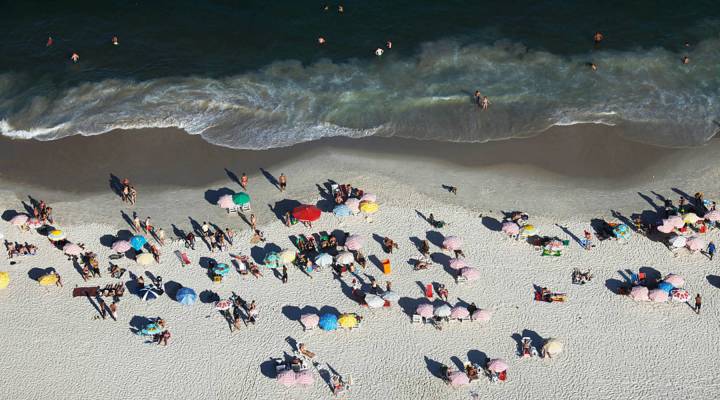
Zika virus scares off travelers — for now
Share Now on:
Zika virus scares off travelers — for now

Brazil hasn’t had it easy. An impeachment or a recession would cast a pall over the upcoming Olympics in Rio de Janeiro by themselves. But a travel advisory and last week’s confirmation that Zika virus is linked to birth defects seem to be scaring away potential travelers — at least for now.
Clayton Reid, president of travel marketing firm MMGY Global said travelers, especially young couples, are starting to second-guess their travel plans. His company has observed a 3,000 percent spike in search traffic related to Zika and safety since November.
“You can see, the consumer immediately begins to think about these issues,” Reid said.
According to MMGY’s surveys, perceived safety has dipped in recent months, but interest is at an all-time high since March 2007. In fact, interest in travel was hit harder by the recession than anything else, Reid said. By contrast, terrorist attacks and disease are blips. There are some cancellations and quite a bit of fear from consumers, but that mellows out.
“I would argue that it’ll be a short-term impact” he said. “As with a lot of these things, it will pass. People [will] moderate their fears, and they will come back to those destinations.”
South and Central American countries might be feeling the squeeze right now, but the industry as a whole is resilient said Hillary Sale, a professor of law and business at George Washington University who studies tourism.
“It’s not that people will stop traveling, they’ll just go other places,” Sale said. “That even happened during the Recession. They just didn’t travel to long-haul destinations, they just traveled to nearby-drive destinations.”
One exception to the bounceback is the Middle East. Persistant fear of danger has lead to a steady decline in interest, even in perfectly safe destinations, Reid said. The same thing happened, though not on the same scale, during the Ebola epidemic.
It’s possible South and Central America, and Brazil in particular, could fall into that trap, especially with the Olympics coming up. Ticket sales have been sluggish, Sale said.
“Before, we had this rush of news stories on the virus. The last time I was interviewed, I said at that point I didn’t think it was going to have that much of an impact, but I’ve kind of changed my mind, particularly in terms of the Olympics.”
There’s a lot happening in the world. Through it all, Marketplace is here for you.
You rely on Marketplace to break down the world’s events and tell you how it affects you in a fact-based, approachable way. We rely on your financial support to keep making that possible.
Your donation today powers the independent journalism that you rely on. For just $5/month, you can help sustain Marketplace so we can keep reporting on the things that matter to you.


















